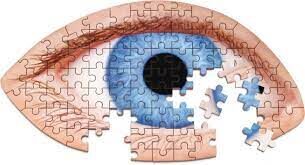Before You Visit
Keeping vision and eyes healthy is an important part of overall health for both children and adults.
Insurance coverage for eye exams can be a confusing topic. How often you should see an eye doctor for various medical eye conditions is at the discretion of your doctor following standard guidelines. The information below is a brief and general overview of how medical and vision plans generally work. One important note: it is your responsibility to understand how your plan works and what is covered. If you have questions about your plan, call the number on your insurance card. By understanding how your plan(s) work, your office visits will be more pleasant and productive.

Keeping vision and eyes healthy is an important part of overall health for both children and adults.

Vision insurance and medical insurance are two different types of insurance policies covering different aspects of healthcare.
Medical insurance, also known as health insurance, covers a wide range of healthcare services, including doctor visits, hospital stays, surgeries, prescription drugs, and other medical treatments. This type of insurance helps to pay for the cost of medical care, which can be very expensive without insurance coverage. Medical insurance can be purchased through employer, the government (e.g. Medicare, Medicaid), or individually through an insurance provider.
Vision insurance covers routine eye-related services with the absence of a medical reason for adjustment of the prescription for glasses or contact lenses. Vision insurance can also be purchased through an employer or an insurance provider. It is always best to check with your insurance provider to see what services are covered under policy.
A Few Examples of What Insurance Covers
Medical Plan
• Dry Eyes
• Sudden Vision Loss
• Eye Pain
• Double vision
• Pink eye
• Spots/floaters
• Eye injury and/or foreign body
• Diabetic eye exams
• Stye
• Ocular migraines
• Headaches
• Ocular allergies
• Contact lens complications including ulcers
• Glaucoma and cataract diagnosis, co-management, and referrals
Vision Plan
• Myopia (nearsighted)
• Hyperopia (farsighted)
• Presbyopia (difficulty focusing)
• Astigmatism
• Computer eye strain
• Lenses
• Frames
• Contact lenses

What is a “Comprehensive Eye Exam”?
Periodic eye and vision examinations are an important part of preventive health care. Many eye and vision problems have no obvious signs or symptoms, so you might not know a problem exists. Early diagnosis and treatment of eye and vision problems can help prevent vision loss. Each patient’s signs and symptoms, along with Dr. Lucas’ professional judgement, will determine what tests are conducted. A comprehensive eye and vision examination may include, but is not limited to, the following tests.
Patient History - You can complete online before your visit!
Visual Acuity
Preliminary Tests
Refraction
Eye Health Evaluation
We ask you bring these items to your appointment.
- Your Eyeglasses and Contact Lenses-wear your contact lenses, bring your glasses
- A List of Eye or Vision Problems-current and previous
- Dr. Lucas provides a link on the website for you to complete the necessary paperwork or patient forms.
- A List of Your Medications and Supplements
- Your Primary Care Physician Information
- Sunglasses
- A Method of Payment
- Your Insurance Cards-Medical and Vision Cards
- Your Day Planner
What is a refraction?
A refraction is a test done to determine if glasses will help you see better.
The charges for a refraction are covered by some insurances but not all.
For example, Medicare does not cover refractions - only health-related procedures.
If you have a medical eye problem like cataracts, dry eyes, or glaucoma then Medicare and most other health insurances will cover the medical portion of the eye exam but not the refraction.
Some people have both health insurance, which covers medical eye problems, and a vision plan (vision plans are not really insurance but a discount plan), which provides some level of benefits toward “routine” eye care (no medical problems) such as refractions and eyeglasses after deductibles and co-payments are made up to a certain limit.
